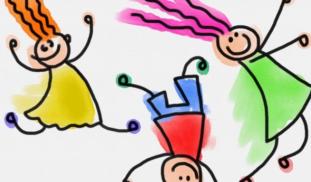90
0
0
References
- 1. Dekker, A. D., De Deyn, P. P., & Rots, M. G. (2014). Epigenetics: the neglected key to minimize learning and memory deficits in Down syndrome. Neuroscience & Biobehavioral Reviews, 45, 72-84.
- 2. Stover, C. S., Zhou, Y., Leve, L. D., Neiderhiser, J. M., Shaw, D. S., & Reiss, D. (2015). The relationship between genetic attributions, appraisals of birth mothers' health, and the parenting of adoptive mothers and fathers. Journal of applied developmental psychology, 41, 19-27.
- 3. Pretorius, I.-M. (2010). Genetic and environemtnal contributors to the intergenerational transmission of trauma and disorganized attachment relationships [Chapter 1]. In T. Baradon (Ed.), Relational trauma in infancy: Psychoanalytic, Attachment and Neuropsychological Contributions to Parent-Infant Psychotherapy. New York, NY: Routledge.
Like?
Please wait...
About This Project
If doctors think infants will have lower skill (e.g., less able to look and to smile at parents), does that bias lead them to expect mental health problems for the infants and their parents? We want to know! We think doctors’ mindsets about a baby’s potential to do things can affect how parents feel about themselves and their baby. This idea is important to study since positive views of one’s infant with a disability are linked to better attachment and to mental health benefits for parents.

Browse Other Projects on Experiment
Related Projects
How does involvement in kink, fetish or BDSM impact a person's health?
Kink-involved people engage in atypical erotic activities such as bondage, rough sex, and fetish activities...
How does taking Ritalin affect depersonalization-derealization disorder patients?
We are investigating Ritalin's role in alleviating symptoms of depersonalization-derealization (DPDR) disorder...
How does sleep deprivation impact problematic eating?
Research studies have linked characteristics of eating disorders (e.g., binge eating, extreme dieting) with...

